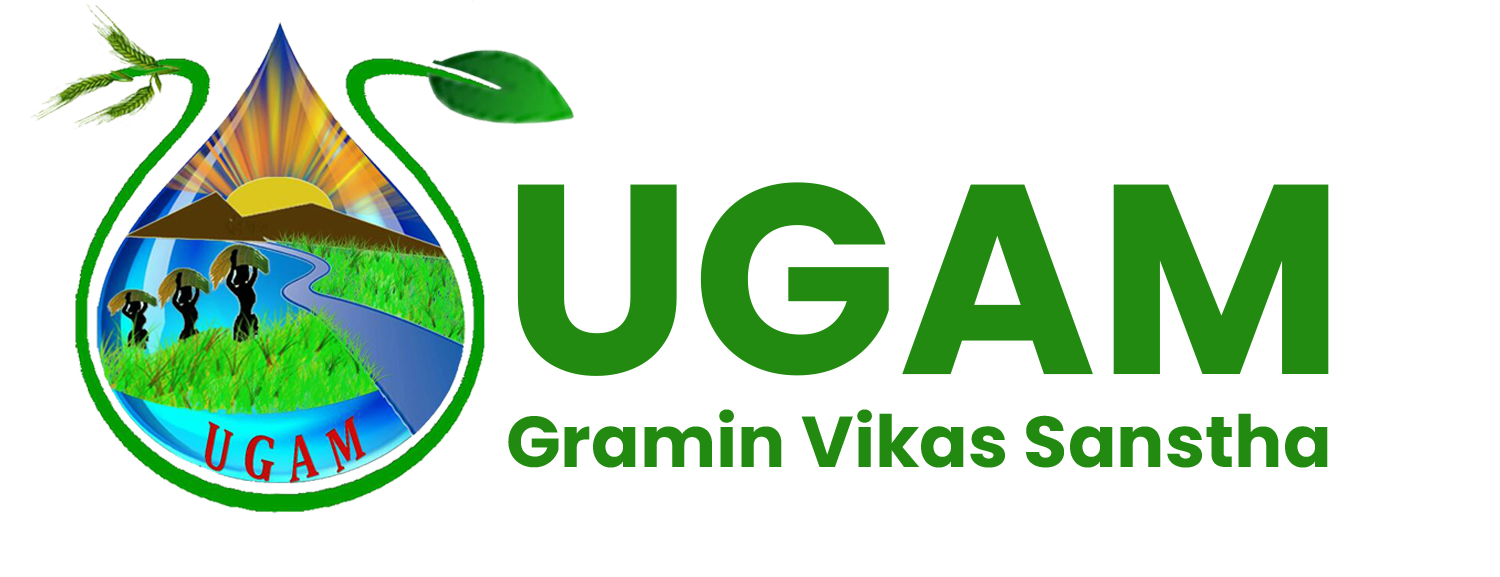As an inhabitant of Marathwada region wherein the consequences of Drought situation prevail, UGAM has been working to mitigate them through Watershed management.
UGAM propagates best practices in Agriculture in the region and strongly promotes Farming organically.
Over the years the arbitrary use of chemical inputs transgenic seeds and mono-cropping, has led to deterioration of the soil and biodiversity in the region, besides affecting the natural ecosystem and preservation of the soil for the next generation. The chemicals used have entered our food chain and water table. Hence, immediate attention for sustainable production which would address soil health, human health and environmental health and eco-friendly agriculture was required.


Organic farming appeared to be one such alternative for sustainability. It is a method of farming system which primarily aimed at cultivating the land and raising crops in such a way, as to keep the soil alive and in good health by use of organic wastes (crop, animal and farm wastes) and other biological materials along with beneficial microbes (biofertilizers) to release nutrients to crops for increased sustainable production in an eco-friendly pollution free environment.
Achieved Outcome/Impact
- 784 Farmers grow a part of their land organically with coverage around 584 Acre land.
- 2393 Farmers availed the use of PATA seed earning INR 3000-4500 more.
- An Organic Bazaar model has become sustainable and is functioning once a week in Hingoli and the Farmers have complete ownership.
- 25 Farmers have direct sale at organic bazaar earning INR 5000-6000 (four days sale in month)
The project of Sustainable Agriculture was started in the 2002, where a team of six professional from UGAM gained training from Institute for Integrated Rural Development (IIRD), Aurangabad. The founder of IIRD was Dr. Alexander Daniel and UGAM today is connected with IIRD. The professionals trained under IIRD further had to train a targeted populace of 500 farmers from 10 villages of Hingoli district about organic farming methods. The professionals engaged in 2 years of training and the project was fully implemented in the year 2004.


Under the IIRD UGAM also has Climate Change and Crop Genetic projects which to certain extent work parallel with Sustainable Agriculture project. What would you prefer to eat; food that is grown more naturally or the food that is enhanced by spraying pesticides and applying chemical fertilizers? Surely, one would choose the former. Most people would prefer the natural food that is free of chemicals and artificial enhancements.
Unfortunately, today the food that we consume is produced by relying heavily on a variety of chemicals and artificial enhancements, such as pesticides, fertilizers, hybrid seeds and genetically modified organisms and their sole purpose is the sale of large quantities of crop and livestock while readily overlooking the consumers need of quality food and thus compromising with their health. Initially the farmers around the world followe d traditional farming method but when the population increased over the years and the food production proved to be insufficient to feed the growing population which led to famine. Dr. Norman Borlaug a scientist from Mexico worked to increase the production of food by experimenting on hybrid seeds, insecticides, fertilizers and pesticides and saw a success in his experiment which then paved a path to chemical farming.

IIRD – Crop Genetic Biodiversity
UGAM has introduced the concept of seed bank in all the 10 villages under this project and all these banks are managed by representatives of UGAM and the farmers of each village. The farmers associated with UGAM for organic farming are provided with organic seeds for crop cultivation and are expected to return the same number of seeds with an addition of minimum 5% of their produce
Achieved Outcome/Impact
- People were turn to organic farming hence their and their lands health having good.
- 35 farmers are selling their products in organic market
- Soil fertility has increased.
- Farmers were bounded in active group
- 10 crops species having conserving by the farmers
- 100 farmers are conservator and 10 Seed Bank have introduced




